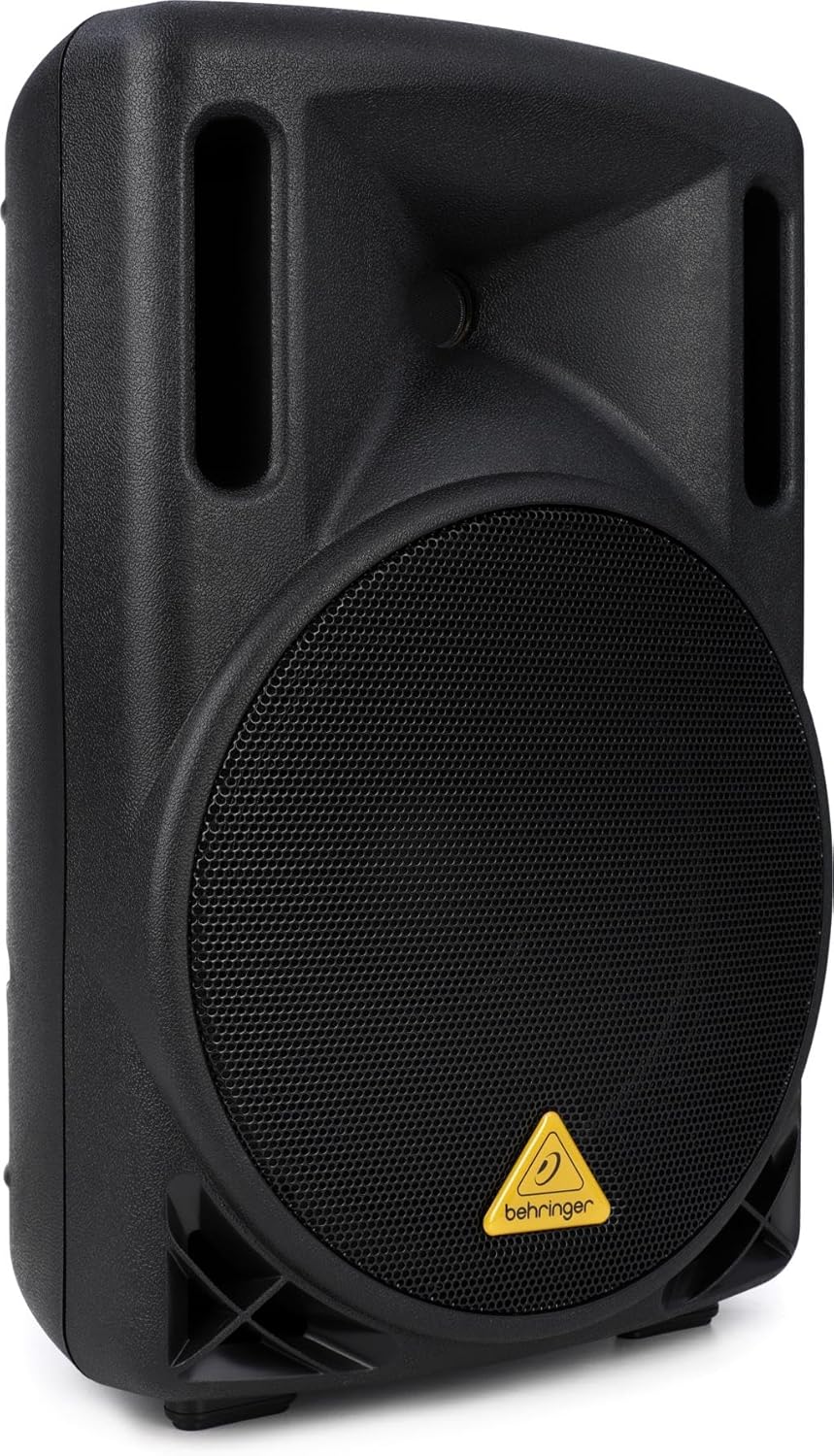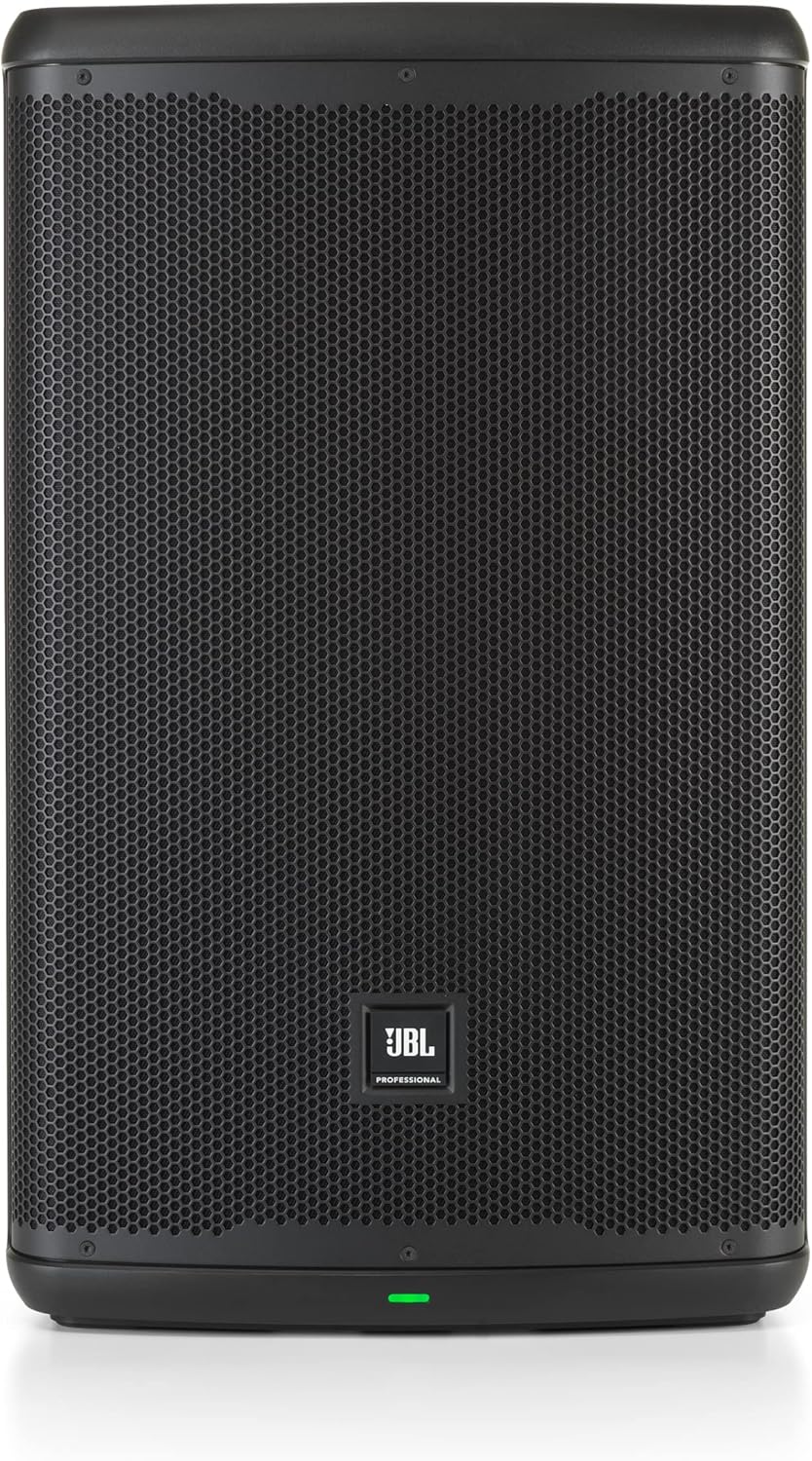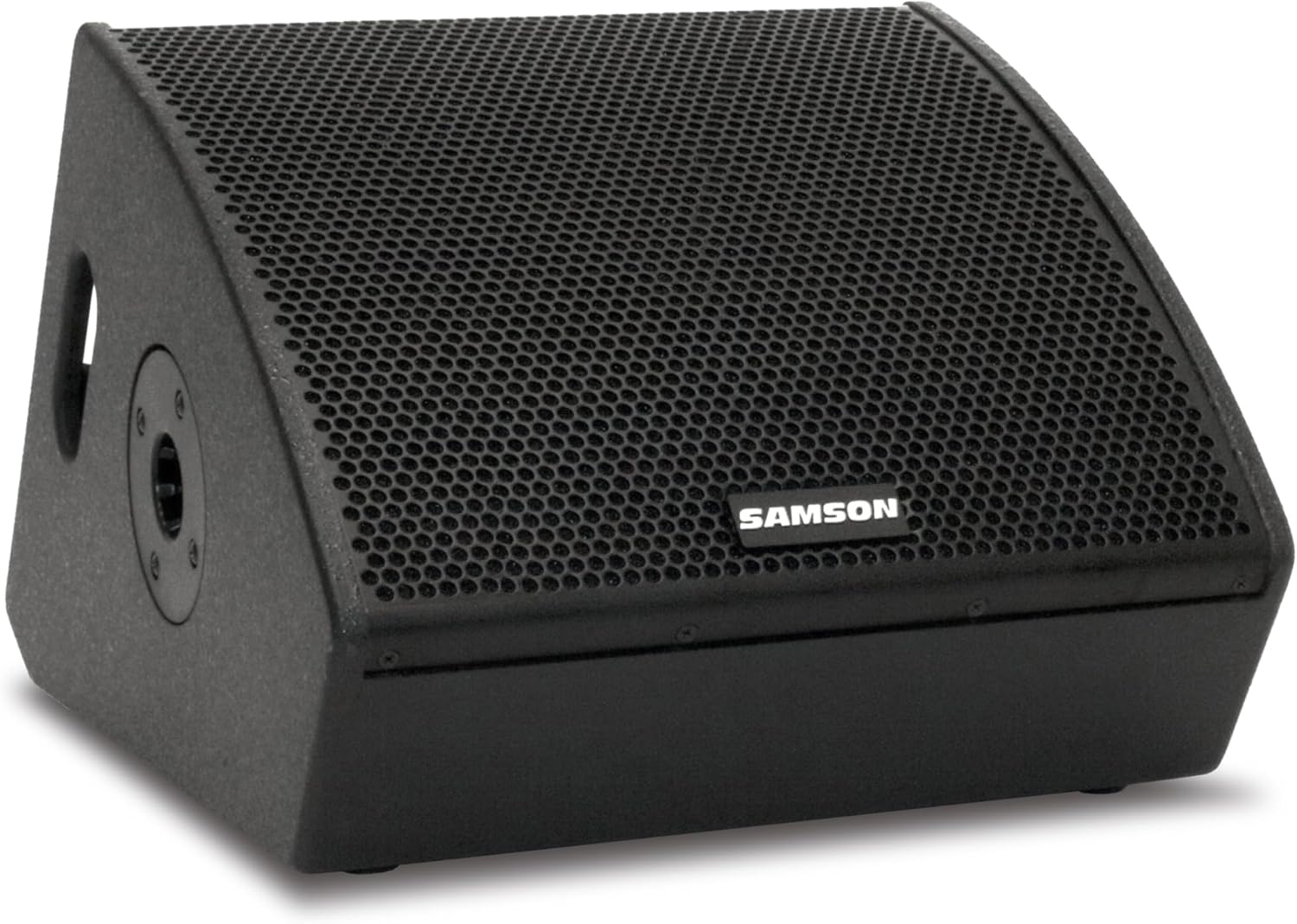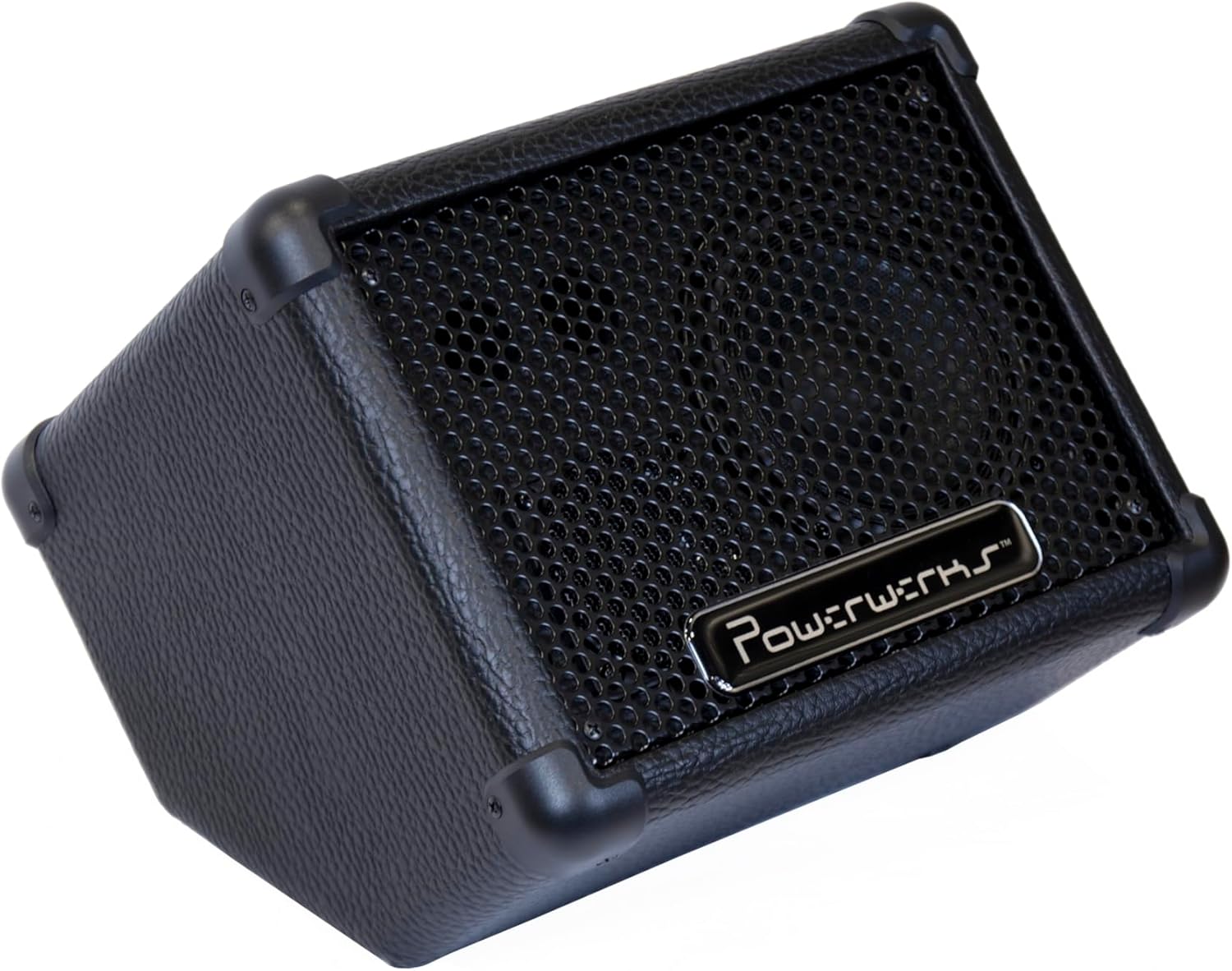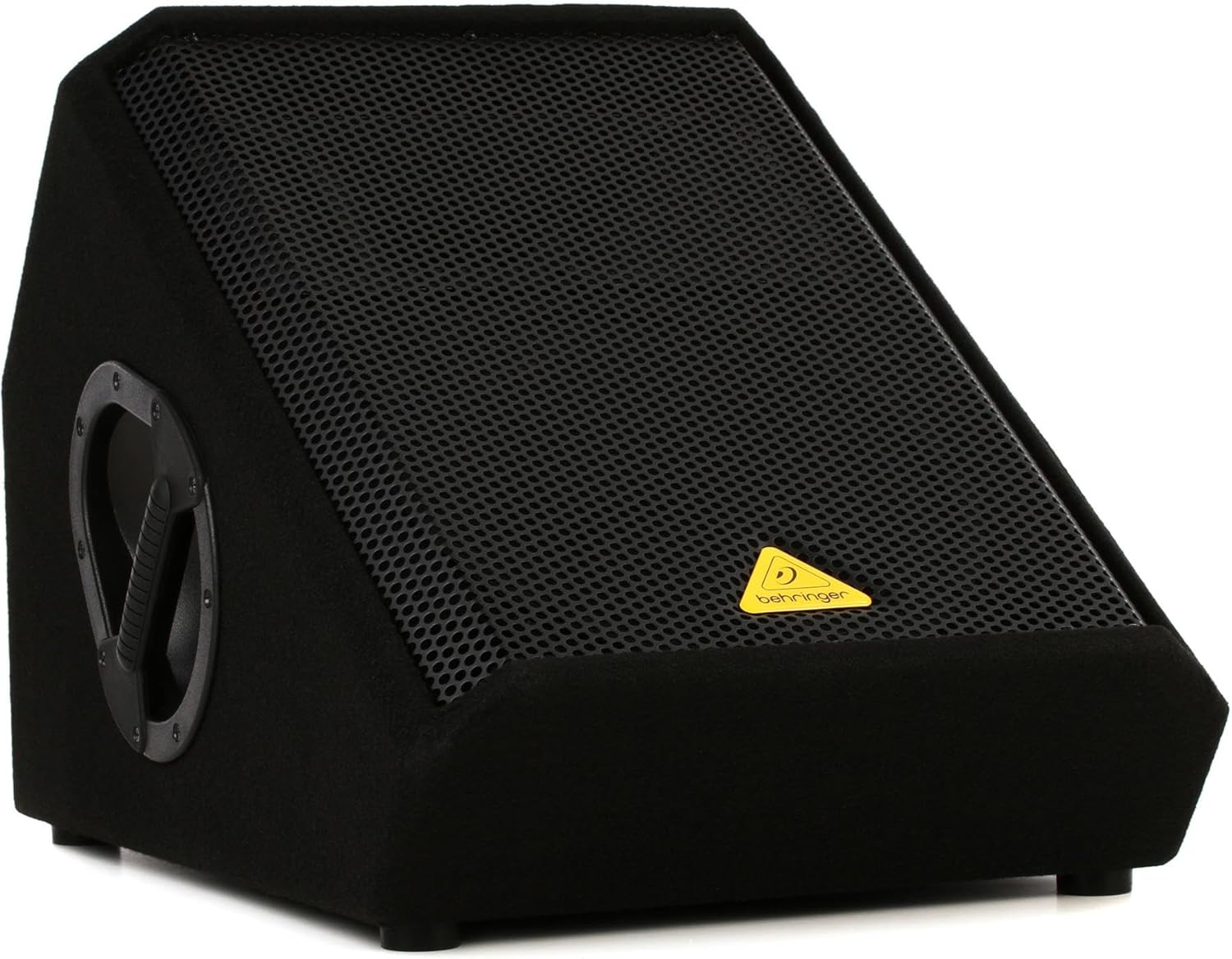Here’s an overview of the Best Stage Monitor that we’ll explore today:
Stage monitors are a critical component of live performances, ensuring musicians and sound engineers can hear their mix clearly and accurately. Whether you’re a touring musician, DJ, or live sound professional, choosing the right stage monitor can significantly impact your performance. For this comparison, we evaluated five popular models from reputable brands, focusing on sound quality, durability, portability, and overall value. Our testing methodology involved hands-on use in live settings, assessing each monitor’s audio clarity, ease of setup, and versatility. In this article, we’ll provide detailed assessments of each product, highlight their pros and cons, and help you make an informed purchase decision.
1. Behringer Eurolive B210D 200W 10 inch Powered Speaker
- Brand: Behringer
- Manufacturer: Behringer
The Behringer Eurolive B210D is an ultra-compact, lightweight powered speaker designed for live music performances and parties. Its 10-inch woofer and built-in HF LF protection deliver excellent sound quality even at high sound pressure levels. The integrated pole mount and versatile connectivity options, including XLR inputs, make it suitable for various setups. It features a switch-mode power supply for noise-free audio and low power consumption, ensuring reliability in demanding environments.
In terms of performance, the B210D excels in smaller venues and intimate settings, where its 200W output provides sufficient coverage. The sound is clean, with good bass response and clarity in the mids and highs. However, its lightweight design makes it prone to vibrations on uneven surfaces, and it may not be ideal for larger venues. Users appreciate its portability and ease of use, though some report that the build quality feels less robust compared to higher-end models.
Pros
- Lightweight and portable
- Noise-free audio thanks to switch-mode power supply
- Good sound clarity in small venues
Cons
- Limited output for larger venues
- Build quality could be improved
2. JBL Professional EON715 Powered PA Speaker
- Brand: JBL
- Manufacturer: JBL
The JBL EON715 is a powerhouse in the portable PA speaker category, featuring a 15-inch woofer and 1,300W of Class D amplification. Its advanced acoustic design ensures uniform coverage and balanced sound, making it ideal for live performances, DJ events, and public speaking. The integrated DSP package includes EQ, limiters, and feedback suppression, while Bluetooth 5.0 connectivity allows wireless streaming. A backlit LCD screen and the JBL Pro Connect app provide intuitive control over settings.
The EON715 delivers exceptional sound quality with deep bass and crisp highs, suitable for medium to large venues. Its Bluetooth functionality is seamless, and the app control adds convenience for on-the-fly adjustments. However, at 37.3 pounds, it’s heavier than other models in this comparison, which may limit portability. Additionally, its price point reflects its premium features, making it less accessible for budget-conscious users.
Pros
- Powerful 1,300W output
- Advanced DSP features
- Bluetooth 5.0 for wireless streaming
- Great sound quality for medium to large venues
Cons
- Heavy and less portable
- Higher price point
3. Samson SARSXM10A 800W 10-Inch 2-Way Active Stage Monitor
- Brand: Samson
- Manufacturer: Samson
The Samson SARSXM10A is a compact, 10-inch 2-way active stage monitor delivering 800W of Class D power. Its coaxial design ensures precise sound reproduction, while the all-wood cabinet construction adds durability. Designed for versatility, it caters to musicians, DJs, and sound engineers, making it a reliable choice for live performances and monitoring applications. The powder-coated steel grill and integrated carry handles enhance portability and durability.
With its powerful output and compact design, the SARSXM10A performs well in various settings, from small gigs to medium-sized venues. The sound is clear and balanced, with a focus on accurate monitoring. However, at 30 pounds, it’s heavier than expected for its size, and the lack of wireless connectivity may be a drawback for some users. Overall, it’s a solid choice for professionals seeking durability and performance in a portable package.
Pros
- Durable all-wood cabinet
- 800W Class D power
- Compact coaxial design
- Versatile for different applications
Cons
- Heavier than expected for its size
- No wireless connectivity
4. PW4P 50 Watt Personal PA Monitor
- Brand: Powerwerks
- Manufacturer: Powerwerks
The Powerwerks PW4P is a compact, personal PA monitor with a 4-inch Eminence speaker and 50W output. Designed for portability, it can be mounted on a mic stand or used as a floor wedge. The mic/line input with THRU jack allows for simple connectivity, making it suitable for solo performers or small setups. Despite its small size, it delivers surprisingly big sound, catering to users seeking an affordable monitoring solution.
While the PW4P is easy to transport and set up, its performance is limited by its 50W output, which struggles in larger venues or louder environments. The sound quality is decent for its size, but lacks the depth and clarity of more powerful models. Users appreciate its affordability and compact design, though it’s best suited for personal monitoring rather than professional applications.
Pros
- Compact and lightweight
- Affordable price point
- Simple setup and connectivity
Cons
- Limited output power
- Sound quality lacks depth
5. Behringer VP1220F
- Brand: Behringer
- Manufacturer: Behringer
The Behringer VP1220F is a passive PA monitor wedge featuring a 12-inch woofer and 1.75-inch titanium-diaphragm compression driver. With an 800W power handling capacity, it’s designed for professional use in live sound setups. Its robust construction ensures durability, while the floor mount design provides stability during performances. This monitor is ideal for users seeking a passive solution to pair with external amplifiers.
The VP1220F delivers powerful sound with excellent bass response and clear highs, making it suitable for larger venues. However, as a passive monitor, it requires an external amplifier, which adds to the overall cost and complexity. Additionally, at 40.6 pounds, it’s the heaviest model in this comparison, limiting portability. Users appreciate its sound quality and reliability but note that it’s best suited for fixed installations or professional setups.
Pros
- High power handling capacity
- Excellent sound quality
- Durable construction
Cons
- Requires external amplifier
- Heavy and less portable
Frequently Asked Questions
We’ve compiled answers to the most common questions about stage monitors to help you make an informed decision.
Conclusion
Choosing the right stage monitor can truly enhance your game.
It offers convenience and makes walking the course easier. With various options available, it’s important to consider your needs.
Think about the cart’s weight, stability, and storage features. A good push cart can save you energy..

